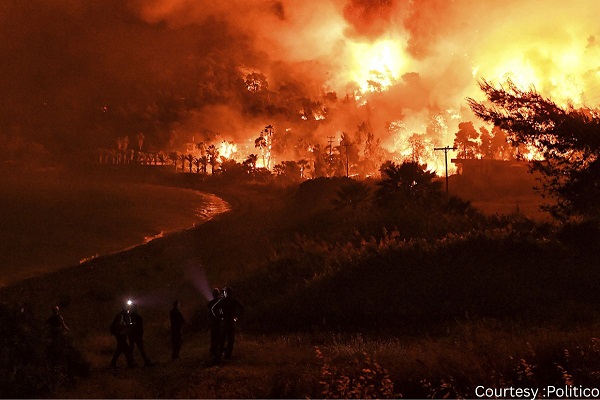GLOBAL — Climate scientists warn that the world is fast approaching dangerous environmental thresholds, as key planetary indicators reveal a deepening climate emergency.
A new international climate assessment has raised alarms about unprecedented levels of greenhouse gas emissions, rising sea levels, and Earth’s surpassing of the 1.5°C warming mark—a critical boundary long considered the upper limit to avoid severe climate disruption.
According to the scientific panel, carbon emissions from fossil fuels and deforestation hit a record high in 2024, releasing over 53 billion tonnes of CO₂-equivalent gases. Experts note that this surge is contributing directly to extreme weather events, vanishing glaciers, and loss of biodiversity worldwide.
Perhaps most concerning, global temperatures have now crossed the 1.5°C threshold above pre-industrial levels for an entire year—a level at which scientists predict irreversible impacts to ecosystems, food systems, and water security.
Rising seas are compounding the crisis. Analysts report that sea-level rise has doubled in speed since 2019, now averaging more than 4 mm annually. Coastal cities, particularly in South Asia, face growing risks of flooding, infrastructure damage, and displacement.
Although global investment in clean energy is increasing—outpacing fossil fuel investment two-to-one—oil, gas, and coal continue to dominate energy supply, fulfilling over 80% of demand. Scientists argue that renewables must scale up much faster to meet climate targets.
Experts emphasize the urgency of this moment. “The decisions made in the next decade will define our environmental future for generations,” one researcher stated. The report warns that if current emission levels persist, the remaining global carbon budget could be exhausted within two years.
The findings arrive ahead of COP30, the next major climate summit scheduled to be held in Brazil. Observers expect mounting pressure on governments and industries to commit to deeper emissions cuts and enforceable climate policy.
Pakistan, already among the nations most vulnerable to climate impacts, faces disproportionate consequences. Floods, droughts, and extreme heat continue to challenge agriculture, water management, and public health systems.
Climate experts urge immediate action: stronger climate laws, large-scale investments in resilience, and international cooperation to reduce emissions and hold polluters accountable.
This story has been reported by PakTribune. All rights reserved.


